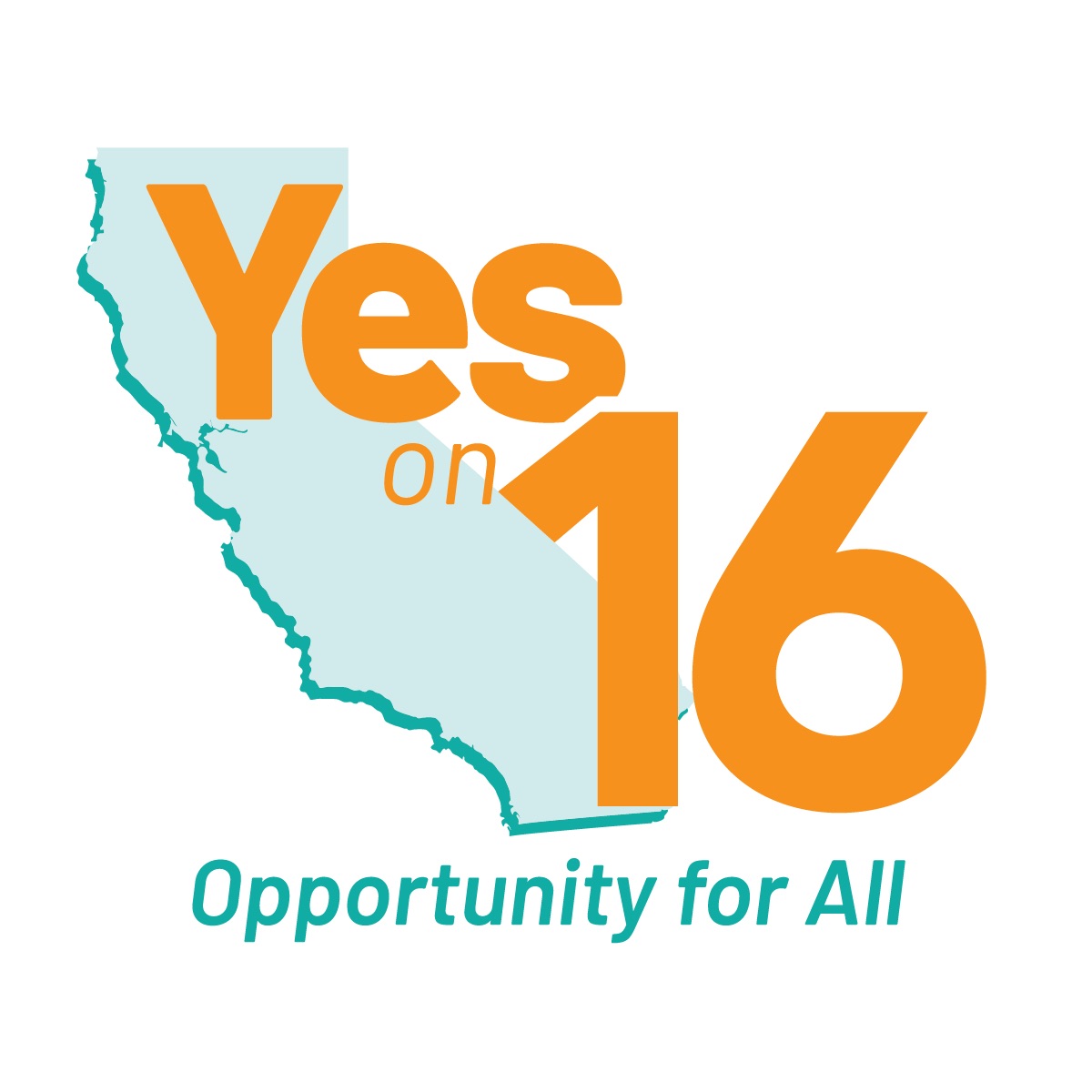Yes on Prop. 16
Bringing a Little Balance Back

Voters sometimes misconstrue affirmative action to be a favor, or set of favors and handouts to the less fortunate. This is simply untrue.
We have Proposition 16 on the ballot to bring at least a little balance back into the narrative of opportunity, with a reinstatement of affirmative action. In 1978 UC Regents v. Bakke struck down diversity quotas as unconstitutional, and in 1996 under Governor Pete Wilson, Prop. 209 was passed banning the use of affirmative action.
Prop. 209 was supported by those like David Duke, the grand wizard of the KKK, and Bob Dole, the Kansas senator who was running for president that year. Attempts were made by the California Legislature that would have over turned Prop. 209, but a bill that passed was vetoed by Governor Jerry Brown.
The general understanding is that affirmative action was for black folks, but the people who have benefitted from affirmative action the most are white women, people with military experience, and after the Americans with Disabilities Act was passed, people with disabilities.
When Prop. 209 passed, the student enrollment of Black and Latino students dropped by 60 percent at some UC campuses. While the Latino enrollment rate rebounded, mainly to the increase of the Latinx population, the Native American population did not fare so well. Their rates dropped by close to 40 percent and never rebounded.
The important thing to realize about this proposition is that it is legislation only for public agencies, which pertains to education, civic positions, and governmental contracts.
The journey of being someone who overcomes, just to get to the point at which your perseverance is supposed to pay off and then does not get you through the gatekeepers’ gates, is the point at which your overcoming defines you. You are then forever the person who has been cast out and cast down.
One of us writing this op-ed, David Moore, was the beneficiary of California’s Equal Opportunity Program in the 1970s. This was affirmative action at its best. I was no great athlete, but our state recruited me on the basis of academic merit. I became the first in my family, among many, to earn a Bachelor’s Degree. Now several of my siblings have master’s degrees, and two of us have doctorates.
Affirmative action is not the people, the government, being generous. It is people and government recognizing deep indebtedness to a big part of the population. Affirmative action amounts to a small way of righting wrongs.
Affirmative action, if looked at as a preferential option for the disinherited, is a tool that provides opportunity because the dominant way of doing things leaves behind our particular narratives and experiences. Whether it is in the history books or in the monetary resources of a city planning team, the investment in communities that have historically been under-resourced and disadvantaged by dominant systems needs an extra path provided for equal opportunity.
The dominant system has used its power to create an exclusive system, and affirmative action commits to taking the extra effort to make an even playing field.
If all things are equal, and there is a decision to be made in the limited situations in which affirmative action applies between a black single mom and a white single mom, the decision should go to the black single mom. If there is a decision between a Latinx disabled man and a white disabled man with the same disability, then Latinx folks should be given the affirmation. If an Indigenous woman applies, she should have the right, right away.
Black, Indigenous, and people of color have had to navigate a system that was not created for them. Their skill, quality, and strength in their accomplishment should be automatically counted. They deserve to be given preference when considering a position in our institutions.



